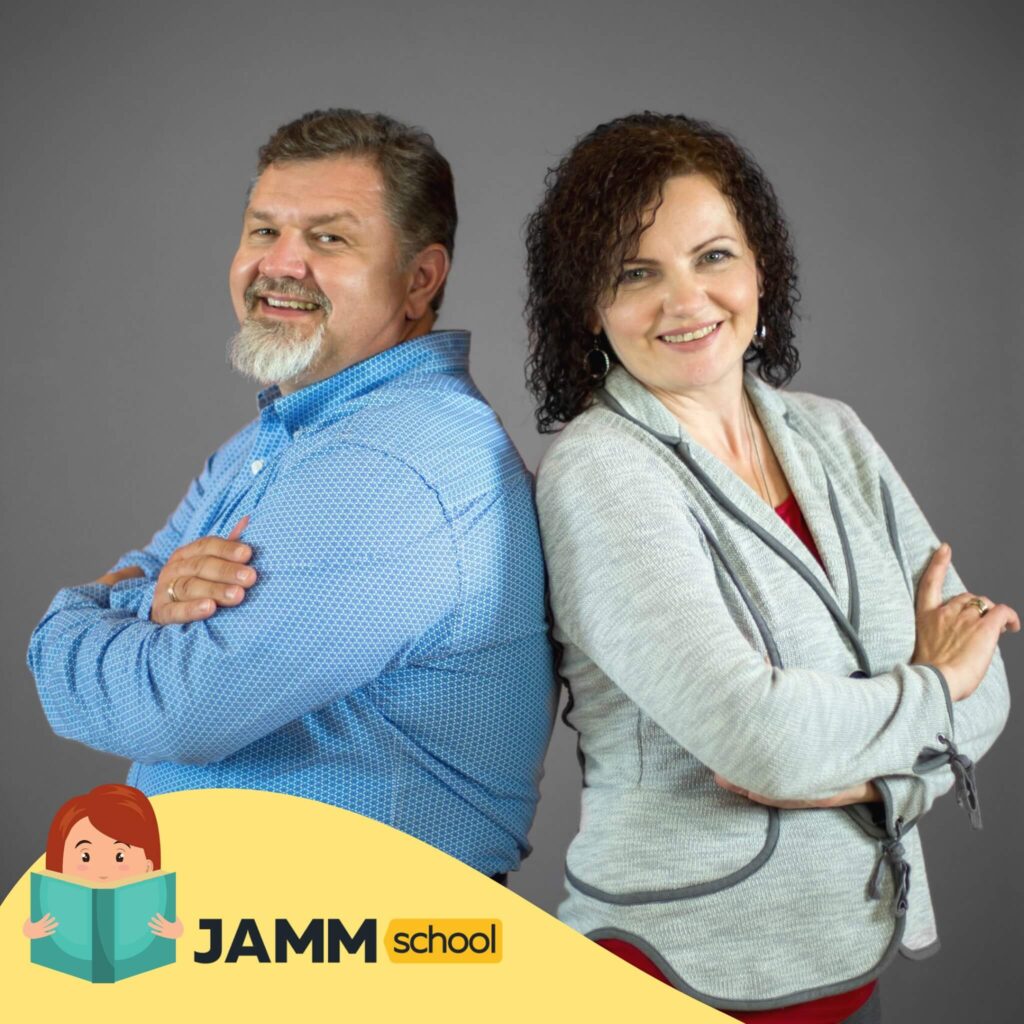With the majority of schools closing their physical classrooms to students last year due to the pandemic, all education players – teachers, students, and parents – had to readjust their processes. It’s safe to say that probably only homeschooling parents didn’t face much change in this department since their work was mostly focused on their families anyway.
Numerous online solutions, such as Zoom for video conferencing, have skyrocketed in 2020, but now that we’re in 2021 and the virus is, hopefully, going away, what does the future look like?
In this article, we’ll focus on the Education and EdTech industry and see how these instruments are hard at work in JAMMSchool, a Ukrainian-based online school.
What Is EdTech / EduTech?
EdTech (aka EduTech) is a combination of Education and Technology, i.e. using the latest software technologies to optimize, facilitate and enhance the learning process.
Examples of EdTech companies include such giants as:
- Duolingo – a web/mobile application for language learning that became wildly popular last year.
- Kahoot – an online learning platform with solutions for workers, students, and parents.
- Teachable – the slogan of this platform is “Share what you know” and they offer a convenient instrument to create coaching services and online courses.
- Matific – while Duolingo focuses on language learning, Matific is focused on providing math learning for K-6 students in a form of games.
- Moodle is a learning management system (LMS) that helps numerous companies and educational institutions around the world offer learning opportunities.
When we’re talking about EdTech software in general, there are such types as:
- Learning management systems (LMS) – like Moodle which we have discussed above.
- Digital Publishing Platforms – like ISSUU.
- Assessment and Evaluation software – like Mentoring Minds.
- E-Learning Gamification solutions – like Obsidian Learning.
- Management and Administration software – like Bitrix24.
- Online Communication software – like Zoom.
What Are EdTech Challenges?
Online learning is great, but certain challenges prevent a lot of people from embracing it wholeheartedly.
One of the main ones that a lot of parents and students mention is a seeming lack of socialization. Without conscious efforts to participate in various offline activities, it might be a lonely experience, which also negatively affects soft skills, especially in terms of teamwork, in the future.
According to Statista research, 68% of people are having concerns regarding online schooling in the United States:
- 24% are concerned about the quality of instruction when it’s not in a traditional offline setting.
- 21% worry that having an online education certificate will negatively affect their ability to find a job because prospective employers might consider it less effective.
- 15% are more likely to choose traditional schooling rather than online due to a lack of community and/or interactions with classmates and professors.
- 8% are not sure the technologies and software will be easy enough to understand and use.

JAMMSchool, An Edutech Project, as a Solution to Online Learning
In the summer of 2020, Oleg Vasilevsky, the Founder and CEO of JAMM Group, walked into the office one morning and surprised his employees: “We are going to launch an online school.”
The main activity of JAMM Group for years was project-based business-oriented camps for children and teens, but with the pandemic, this business was hard to maintain due to restrictions for in-person interactions.
The choice for an online school was, however, a rather surprising move since three years ago, the JAMM team shut down an offline educational project that didn’t work out – JAMMSchool 1.0 as they call it now.

“Opening a school again was an incredibly risky move,” shares Oleg. “We failed and it was hard to bring ourselves to try something similar. However, we have looked at our strengths and decided that we can use that experience to avoid making the same mistakes in this endeavor. The foreseeable benefits outweighed the risks.”
During the war in Ukraine in 2022, JAMMSchool platform is being offered for free for all Ukrainian students grades 5-11. Check out the details on their website.
How To Choose the Right Technology for Online School?
There are numerous educational platforms available on the market including such products as Canvas, Moodle, Google Classroom, TalentLMS, Schoology, etc.
The JAMM team has spent days reviewing different platforms to find a good match, but they kept running into the same problem: it either couldn’t be customized to fit the vision of “Freeing the children from stress” or the customization would cost a lot of money the project’s budget couldn’t allow. The available budget also removed the option of developing something absolutely new.
“So our choice was based on a very simple principle – we went with the platform our employees were familiar with and knew how to work with. This platform was Moodle, an open-source flexible platform that has numerous widgets and addons we could use for our students and teachers,” says Oleg Vasilevsky. “Another product that we rely on in terms of the clients’ flow and operations is Bitrix24, which can be integrated with Moodle.”
What Is Different About the JAMMSchool Edutech Approach?
Why do students lack the motivation to learn? The programs of most educational institutions are based on overcoming weaknesses: “Let’s see where you need help the most and help you improve that area.” As a result, you get a pretty average person and usually, such an approach completely ignores the strengths that the student already has.
JAMMSchool’s program is based on 3S:
- Strength-based education is based on Gardner’s Theory of Multiple Intelligences.
- Socialization events and activities to overcome the “total onlineness” and learn how to communicate and work in a team.
- Supervisors help teens to remain productive and motivated in their studies.
“Our goal was to create a platform that would allow our clients (students) to know their standing in terms of the grades at any given moment, similar to knowing your score in computer games,” shares Oleg. “We wanted our students to know the answer to the questions ‘Am I winning or losing right now?’ and ‘What should I do to win?’”
We wanted our students to know the answer to the questions ‘Am I winning or losing right now?’ and ‘What should I do to win?’
Oleg Vasilevsky
Thanks to this approach and gamification, JAMMSchool has efficiently transferred the responsibility for educational success from the school to the student. The school can only offer good study materials and motivated teachers, but it is the student’s responsibility actually to learn.
Using their vast experience with project-based camps, the JAMMSchool team organizes various events and activities for the students. For example, middle graders had to work in a team to create a concept for a board game, while high schoolers were focused on developing a concept for an innovative social network.
Besides the basic idea, the children had to think about the target audience, marketing activities, project budget and revenue structure, rules for the game, or value-added for the social network. At the end of the week, all teams presented their product to “investors” and gained valuable feedback about the work done. As one of the investors myself (the author of the article), I have enjoyed the presentations and communication skills of the students.
“We have a few more ideas up our sleeves to streamline the processes and optimize our Moodle product to make it more comfortable and user-friendly for our clients. Another area where we want to improve is the socialization activities to make this process more proactive. Right now, it’s very consumeristic, but we plan to introduce ways where older students can mentor younger ones on various topics and earn additional bonus points.”
JAMMSchool in Numbers
- 50 students – original goal at the project’s start in the summer of 2020
- 132 students – signed up at the beginning of the 2020/2021 educational year
- 224 students – currently enrolled in JAMMSchool as of spring 2021
- 11 teachers
- 11 supervisors
- 1,001 ideas of how to make education less stressful
Learn more about JAMMSchool or sign your teens up on the website.
The Future of Online Learning: Edtech Insights
There will be three major phases of distance learning evolution:
- Online education will continue to increase for some time. Within the last two years, it has grown by over 80%, which is understandable given the pandemic and unavailability of traditional offline education. However, the global percentage is still low – even if 2% of students will be learning online, it will be a great achievement.
- The next stage, Oleg Vasilevsky predicts, would be persecution. Traditional “brick building” schools usually belong to the government and they aren’t very interested in losing funding. This process already started in some areas of the United States, where charter schools are forced to battle their way through.
- Students will start going back to the traditional offline education system for various reasons (including more familiar socialization.) However, the offline numbers will not reach the pre-COVID levels simply because a lot of people have found great benefits in being flexible and focusing on reaching business and education goals instead of the physical place of work.
2020 has shown that EdTech has great potential and the demand is ever-increasing now that a lot of people have tried it.
Are you looking for a development company to build an EdTech software solution for your business?
Wondering about time-to-value?
Request a no-obligation discovery call and receive a preliminary estimate tailored to your KPIs.


